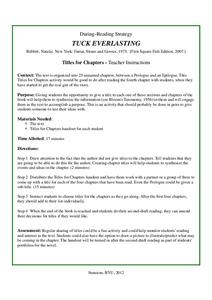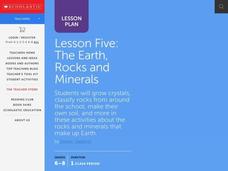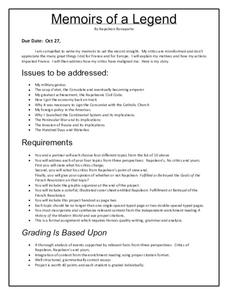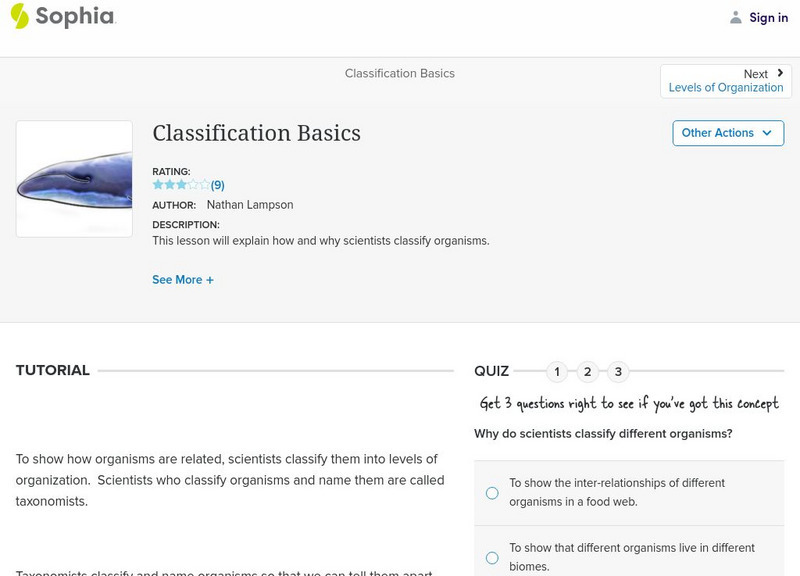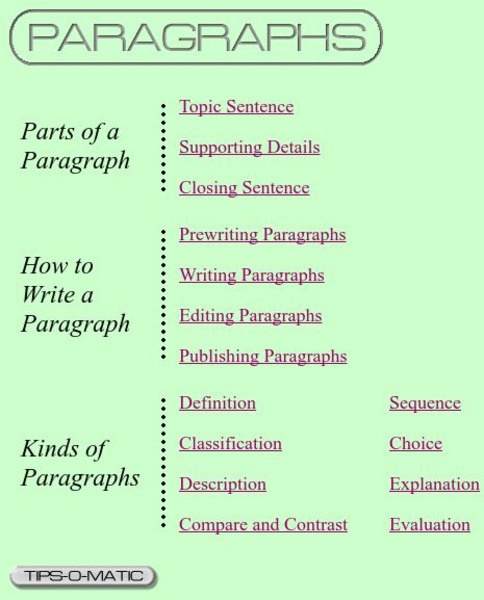Discovery Education
Clutter Cutter
Challenge young learners to cut the clutter with this fun engineering project. As employees of a home and office supply company, young engineers are asked to develop devices that organize everyday items. After participating in a...
New South Wales Department of Education
Invertebrates
Of all invertebrates, insects by far are the most numerous. Scholars discuss invertebrates and then use a key to classify them. They see different examples and must describe features of each organism based upon the key.
Mr. Jones's Science Class
Periodic Table Project
Don't be fooled by the title; this is not really a lesson on elements. It is a project on classification, using the periodic table as an example. For that reason, it could be used in any branch of science. As an example, a group may...
Infobased Learning
Bloom's Literature: How to Write about Nineteen Eighty Four
A good prompt is hard to find, especially ones that encourage application, analysis, synthesis, and evaluation of a text. Help is here in the form of a prompt list for George Orwell's Nineteen Eighty Four that offers essay topics that...
Curated OER
Express Yourself Lesson Seed 12: Story Event
Focus on plot and the impact-specific events in The Cay. Class members use their double-entry journals, created in a previous lesson in this series, to record their thinking about the guiding question as they read chapters 15 through 17....
Novelinks
Tuck Everlasting: Titles for Chapters
High schoolers synthesize the information they've learned from each chapter of Natalie Babbitt's Tuck Everlasting with a creative summarizing activity. With a graphic organizer for all of the book's chapters, readers title...
Novelinks
The Little Prince: Request Strategy
Teach your readers how to engage with a text by using the request strategy. As kids read Antoine de Saint Éxupery's The Little Prince, they choose a passage of text and formulate questions to stump their partners or their...
Scholastic
Lesson Five: The Earth, Rocks and Minerals
Apply the principles of geology to a series of collaborative, hands-on class activities. Young earth scientists learn more about igneous, metamorphic, and sedentary rocks before classifying and weathering rocks that they find....
Curated OER
2004 Asian Earthquake and Tsunami Disaster Project
Students are employees of a unit of the United Nations, they are responsible for coordinating disaster relief after a major disaster (the 2004 Asian Earthquake and Tsunami) occurs. The agency needs to understand the situation in each...
Beverly Hills High School
Memoirs of a Legend
To conclude a study of the French Revolution, young historians adopt the voice of critics of Napoleon Bonaparte and lay charges against him. They then craft a memoir in Napoleon's voice that details his motives and what he sees as his...
Gourmet Curriculum Press
Author's Purpose
Who knew determining author's purpose could be turned into a game? Four teams compete to correctly identify the author's purpose for writing a series of passages.
PBS
Predicting/Making a Hypothesis
As an introduction to the hypothesis and testing method of investigation, young history detectives engage in a special investigation of a family artifact. After watching a short video that demonstrates the method, they develop a...
ARKive
Temperate Rainforest in the Pacific Northwest
Explore the amazing temperate rainforest of the Pacific Northwest. Your class starts by investigating the animals and plants of the Northwest, specifically Washington, and then research an animal population common to the area. In small...
Sophia Learning
Sophia: Classification Basics
This lesson will explain how and why scientists classify organisms.
Sophia Learning
Sophia: Classification of Organisms: Lesson 1
This lesson will introduce taxonomy and give an example by providing the scientific classification of an organism. It is 1 of 2 in the series titled "Classification of Organisms."
University of British Columbia
University of British Columbia: Soil Components
Use this interactive website to learn everything you wanted to know about the four components of soil: minerals, organic, water, and air. Many links along the way assist with comprehension by allowing you to view photographs, charts, and...
Discovery Education
Discovery Education: The Dirt on Soil
This interactive website explores the various soil layers and introduces you to the lifeforms that live in those soil layers.
Shippensburg University
Shippensburg University: Personality Theories: Jean Piaget
This is an excellent resource on the life and work of the Swiss educational psychologist Jean Piaget (1896-1980).
ACT360 Media
Writing Den: Paragraphs
How do you write a paragraph? Use this site to learn more about the different parts of a paragraph.





